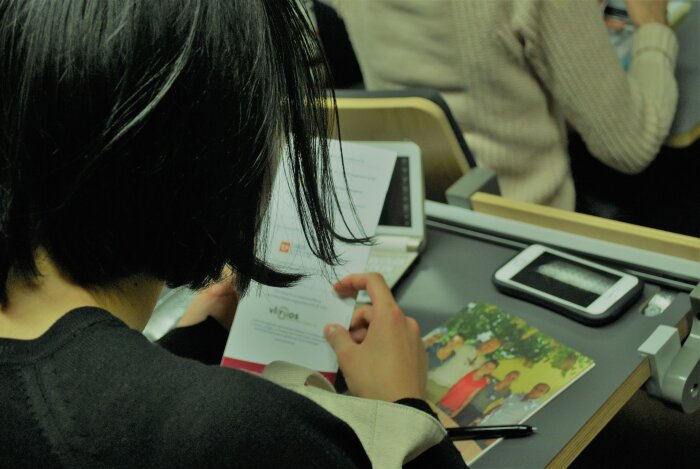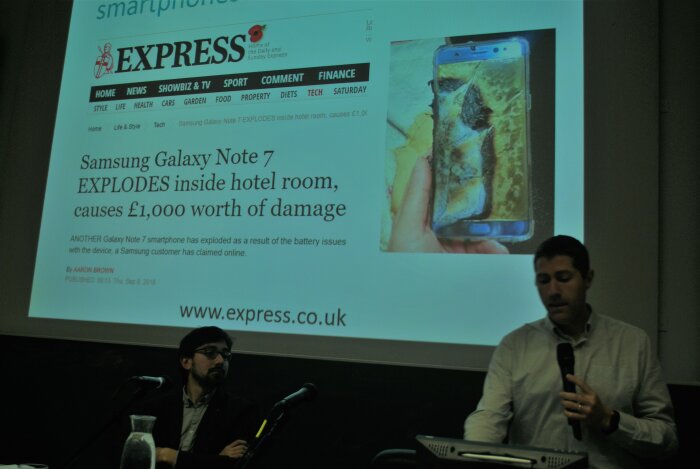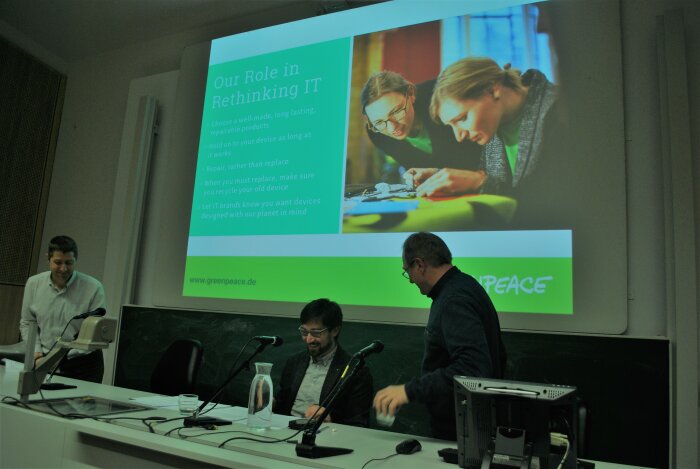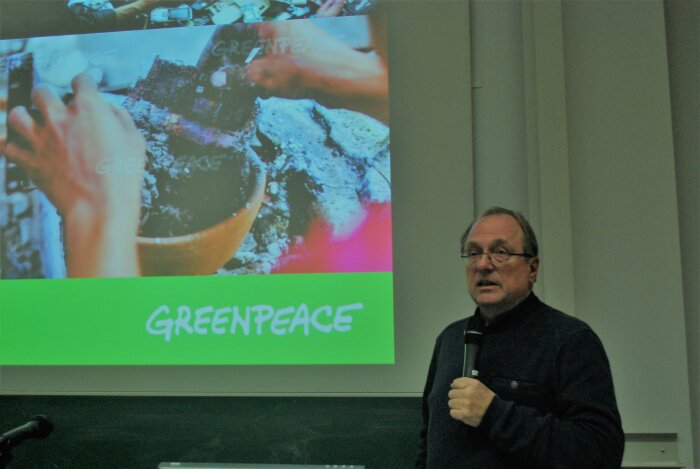Presentations
A Smart What? Investigating the Global Impact of Ten Years of Smartphones
Lecture - Tuesday 7 November 2017
- From 7 p.m. to 9 p.m.
- University of Antwerp - Stadscampus - Rodestraat 14 - R.014 - 2000 Antwerpen (how to reach the city campus?)
About the lecture
The worldwide use of smartphones has grown tremendously in recent years. Between 2007 and 2016, a total of 7 billion smartphones have been produced. While changing the lives of many, the sustainability of this trend is questionable. Many smartphones only last for a couple of years, whereas the majority of materials used are not recycled. This debate investigates the global impact of ten years of smartphones. What are the environmental implications of manufacturing smartphones at large? How should we understand the current production and consumption model? And what alternative models exist to make the whole manufacturing process more sustainable?
From smart to senseless: the gobal impact of 10 years of Smartphones (Greenpeace, 2017)
The global e-waste monitor (United Nations, 2014)

Keynote Manfred Santen is a graduate chemist and chemistry expert and toxics campaigner at Greenpeace Germany. Mr. Santen campaigns for a more sustainable business model for mobile devises. More about Manfred Santen.

Discussant Gerrard Fisher works for QSA - a specialist consultancy in developing working circular business models with brands and retailers. This work has led to UK-wide gadget trade-in business models (e.g. Argos), and the UK's first brand-led leasing offer (Samsung Upgrade in 2016, which was followed by Apple in the UK later in 2016). He originally worked in blue-chip high-value manufacturing with Zeneca and at the forefront of electrical and electronic product sustainability at UK resource efficiency body WRAP. Gerrard led the development of WRAP's sustainability action plan for electrical and electronic products (esap) and authored the "Switched on to Value" evidence summaries. His projects included developing e-waste collection campaigns for householders, helping retailers to specify more durable "own-brand" products, and convincing TV brands in Europe to adopt mercury-free labelling on products sold in the EU. From 2011, Gerrard's work focused on circular economy business models, developing and leading work on helping companies create and implement circular business models in their commercial offer. Twitter: @gerrardfisher

Moderator Filip Reyniers is Director of International Peace Information Service (IPIS) since October 2012. Filip Reyniers oversees the general management of the organization and coordinates the research programmes. Previously he worked for the Belgian/Flemish Section of Amnesty International as a fundraiser and member of the Campaign-Movement department, specializing in human rights education and movement building. Since 2004, also in Amnesty International, he developed expertise in the field of arms transfers and human rights, taking part in the campaign for a UN Arms Trade Treaty and applying human rights analysis to arms transfers in the Belgian context. Filip studied Law (undergraduate) and History at the University of Leuven and completed the High Security and Defense Studies at the Belgian Royal Higher Institute for Defense. He has a particular interest in human security and the rule of law. Filip is a Board Member of the Flemish Peace Institute. More about Filip Reyniers Twitter: @FReyniers



